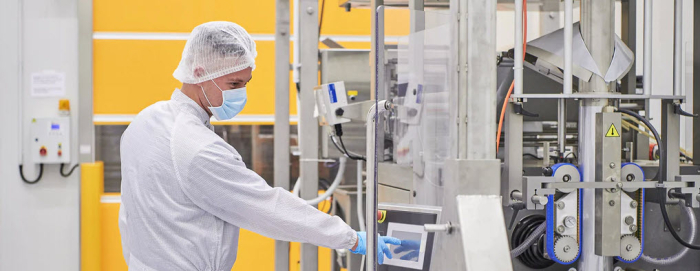In the pack houses of Hawke’s Bay apple growers, smart cameras scan the apples looking for blemishes and grading the fruit to ensure only the best is selected for domestic and international markets.
This innovation has not only made the horticultural sector more productive in terms of the effort that goes into processing and packing apples, it’s allowed the sector to offer higher quality, and therefore higher value produce to the world.
It took trial and error from early adopters over a decade ago to adapt the technology to their needs and train people in how to use it. This work gave the wider horticultural sector the confidence to invest in the equipment and standardise its use everywhere as the cost of the technology decreased.
That’s the key to boosting productivity in New Zealand, says Ben Speedy, ASB’s General Manager, Commercial Banking.
“In highly productive nations, the onus is on larger organisations to be early adopters of technology and to train the workforce so it can confidently embrace it. Ultimately, that effort supports the uplift of the technology elsewhere, a tide that lifts all boats,” he says.
Beyond low-wage labour
New Zealand’s chronically low productivity relative to other countries means we need to supercharge that process, infusing new productivity-boosting technology throughout our industries, and thinking about how we can add value to our products and services to boost export revenue.
“For too long, we’ve relied on accessing relatively low-cost labour to support businesses to grow. The pandemic led to an acute labour shortage, which continues to some extent as people are no longer willing to work in those lower-paid jobs,” Speedy explains.
 Bon Accord Auckland’s manufacturing plant
Bon Accord Auckland’s manufacturing plantAutomation is part of the answer. ASB customer Bon Accord, which produces a wide range of hot and cold beverages, has built state-of-the-art facilities at its Auckland manufacturing plant to streamline its production process, investing in research and development and consulting its international customers to find out what they need.
Technical capability encompasses a business's ability to leverage technology effectively to achieve its strategic objectives. It involves the integration of knowledge, skills, equipment, and processes to improve operations, drive innovation, and deliver superior products and services.
A recent study by the New Zealand Institute of Economic Research (NZIER), commissioned by ASB, found that investing in innovation could add tens of billions of dollars in value to the economy.
AI to drive the next wave of innovation
Our large internationally-focused companies, such as Xero, Fonterra, and Fisher & Paykel have invested extensively in innovation. But a wave of digital transformation has afforded businesses of all sizes to more easily innovate – for example by implementing a customer relationship management software package or rolling out chatbots to aid customer service.
“Artificial intelligence is the next big wave of digital transformation, but there’s a real lack of understanding around how AI can be used to support businesses at scale,” says Speedy.
While most business leaders recognise the need to invest in productivity-boosting capability, faced with economic uncertainty, it can seem like a hard outlay to justify.
“Anytime you're investing in some form of plant and machinery, it's typically going to require you to take out a loan to pay for it. Given the current high interest rate environment, businesses have been a bit more cautious with regards to borrowing,” Speedy points out.
A leap of faith
That’s why ASB is helping customers undertake a financial diagnostic report, to model the impact of investing in innovation, accurately assess the payback period of that investment, and the increase in value the business will experience as a result of it.
“Our commercial managers take the time to understand the business itself, and what the aspirations of the business are. That’s all about giving our customers confidence that they’ll see a return on that investment,” says Speedy.
Access to capital is crucial for enabling businesses to make the necessary investments in technology and equipment, which is why ASB is making available up to $500million in loans for New Zealand businesses seeking to fund productivity improvements. In addition, $5 million worth of Productivity Grants, up to $50,000 per business (1% of the loan), has been made available for a limited time to those borrowers looking to invest.
Speedy says loans already signed will fund factory expansions and new production lines, as well as software, robotics, and digital platforms.
“Investing in new equipment, technology, and processes requires a significant amount of capital and a leap of faith in the potential returns on these investments,” says Speedy.
“But virtually every business that we work with that has invested in productivity tells us that they wish they had done it earlier. That illustrates the positive impact it has had on their business.”
To find out more about ASB’s Productivity Grants, visit asb.co.nz/productivity
ASB Bank Limited’s lending and eligibility criteria, terms and conditions, rates and fees apply. Offer is subject to change and may be withdrawn at any time.
Hero image – Ben Speedy, ASB’s General Manager of Commercial Banking.






